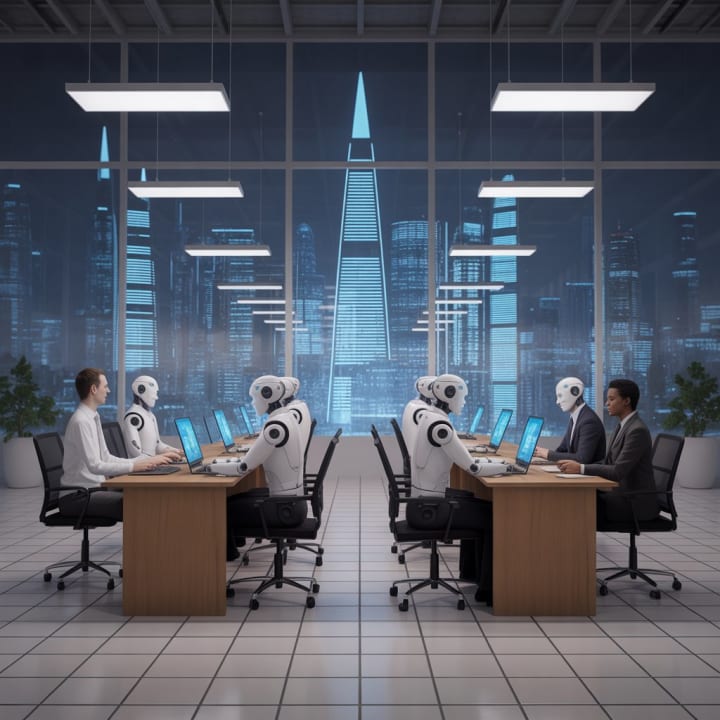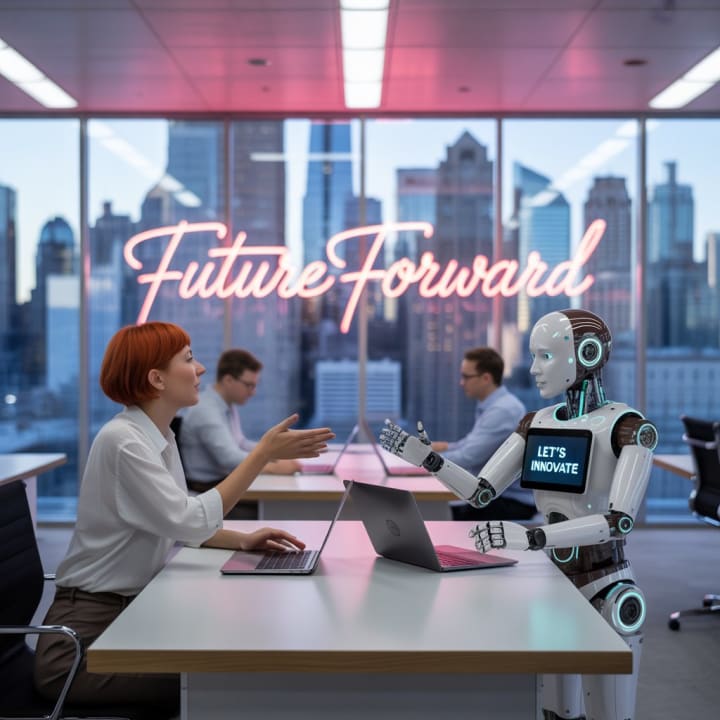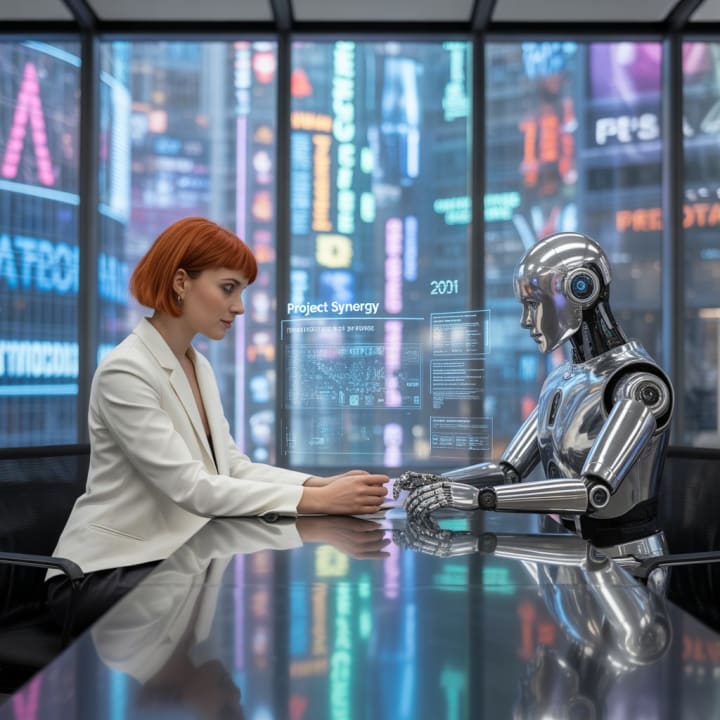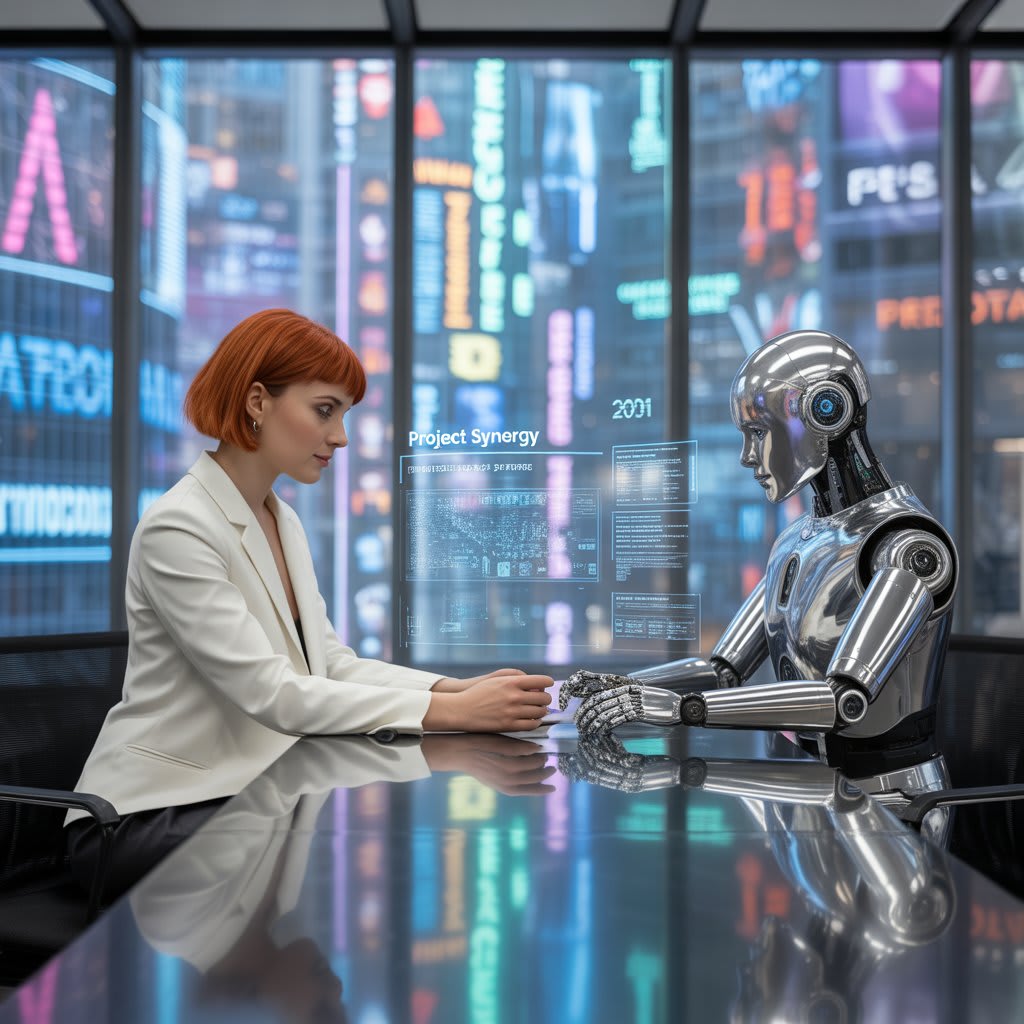🌍 Introduction: The Question That Haunts Us All
“Will AI take my job?”
It’s the question millions of people are quietly asking but afraid to say out loud. With every headline about robots writing stories, chatbots replacing customer service, and machines analyzing data faster than humans ever could, the fear feels real.
By 2030, artificial intelligence will be more advanced, more widespread, and more embedded into our daily lives than ever before. But does that mean humans will become obsolete?
The truth is far more complicated—and far more hopeful—than most people realize.
🤖 The Current AI Landscape
AI isn’t science fiction anymore. It’s not just in research labs or Hollywood movies—it’s in our pockets, our offices, and even our homes.

Customer service: Chatbots handle millions of inquiries daily.
Retail & banking: AI recommends products and detects fraud in real time.
Healthcare: Algorithms read X-rays, detect diseases, and suggest treatments.
Transportation: Self-driving technology is advancing rapidly.
And yet… humans are still here. Why? Because AI is good at tasks, not at being human.
⚠️ The Jobs at Risk by 2030
By 2030, certain industries will look dramatically different. Automation and AI are expected to heavily impact:
Manufacturing: Robots will continue to dominate assembly lines.
Data entry & administrative work: Anything repetitive and rule-based is AI’s sweet spot.
Basic customer support: First-level queries will rarely need a human.
Transport & logistics: Self-driving trucks and drones will reshape delivery and trucking.
The hard truth: millions of jobs will shift, evolve, or disappear. But that’s not the full story.
🧠 The Jobs AI Can’t Replace
Despite the fear, there are areas AI struggles with—and may never master:
Creativity: Writing poetry, creating art, designing new ideas.
Empathy: Comforting a grieving friend, motivating a struggling teammate, understanding human nuance.
Leadership: Vision, strategy, and inspiring people can’t be automated.
Ethics & morality: Machines follow rules; humans make values-based choices.
These are the skills that define humanity. They are messy, emotional, and complex—things AI can’t mimic authentically.
🔄 The Hybrid Future: Humans + AI
The future isn’t about humans versus AI—it’s about humans with AI.
Imagine a doctor using AI to scan thousands of medical images in seconds, then using human judgment to deliver a diagnosis with compassion.
Or a teacher using AI tools to personalize lessons, freeing more time to connect with students.
Or a writer using AI to brainstorm ideas but still shaping the story with personal voice and lived experience.
AI doesn’t eliminate human value—it amplifies it, if we’re willing to adapt.

🌟 The Big Truth Nobody Talks About
The fear that “AI will take our jobs” is real, but here’s the truth nobody emphasizes:
It’s not AI itself that determines the future—it’s humans.
Governments decide how AI is regulated.
Companies decide whether to replace or retrain workers.
Individuals decide whether to resist change or embrace new skills.
History shows us this isn’t new. The industrial revolution, the internet boom, and even the rise of computers all brought fear of job loss. And yet, each wave created new industries, new roles, and new opportunities.
The same is true for AI.
📚 Skills to Future-Proof Yourself
If you want to thrive in 2030, focus on skills AI can’t easily replicate:
Critical Thinking – the ability to analyze, question, and solve complex problems.
Creativity & Innovation – building something new, not just repeating patterns.
Emotional Intelligence – understanding people, emotions, and relationships.
Adaptability – staying flexible in a rapidly changing world.
AI Literacy – knowing how to use AI as a tool instead of fearing it.
Those who embrace lifelong learning will not just survive—they’ll lead.
🚀 Conclusion: The Human Edge
So, will AI replace human jobs by 2030?
Yes—and no.
AI will absolutely transform industries, eliminate certain roles, and redefine “work” as we know it. But it will also create opportunities we can’t yet imagine. The real danger isn’t AI—it’s refusing to adapt.
The world of 2030 won’t belong to the robots. It will belong to the humans who learn to work alongside them.
Perfection isn’t the goal. Adaptability is. And in that balance, the future is brighter than we think.
✍️ Author’s Note (By Nadeem Shah)
I’ve written this not to fuel fear but to spark reflection. Technology has always changed the way we live, but it has never erased the value of being human. AI is no different. The challenge ahead isn’t whether AI will replace us—it’s whether we’re ready to grow with it.


